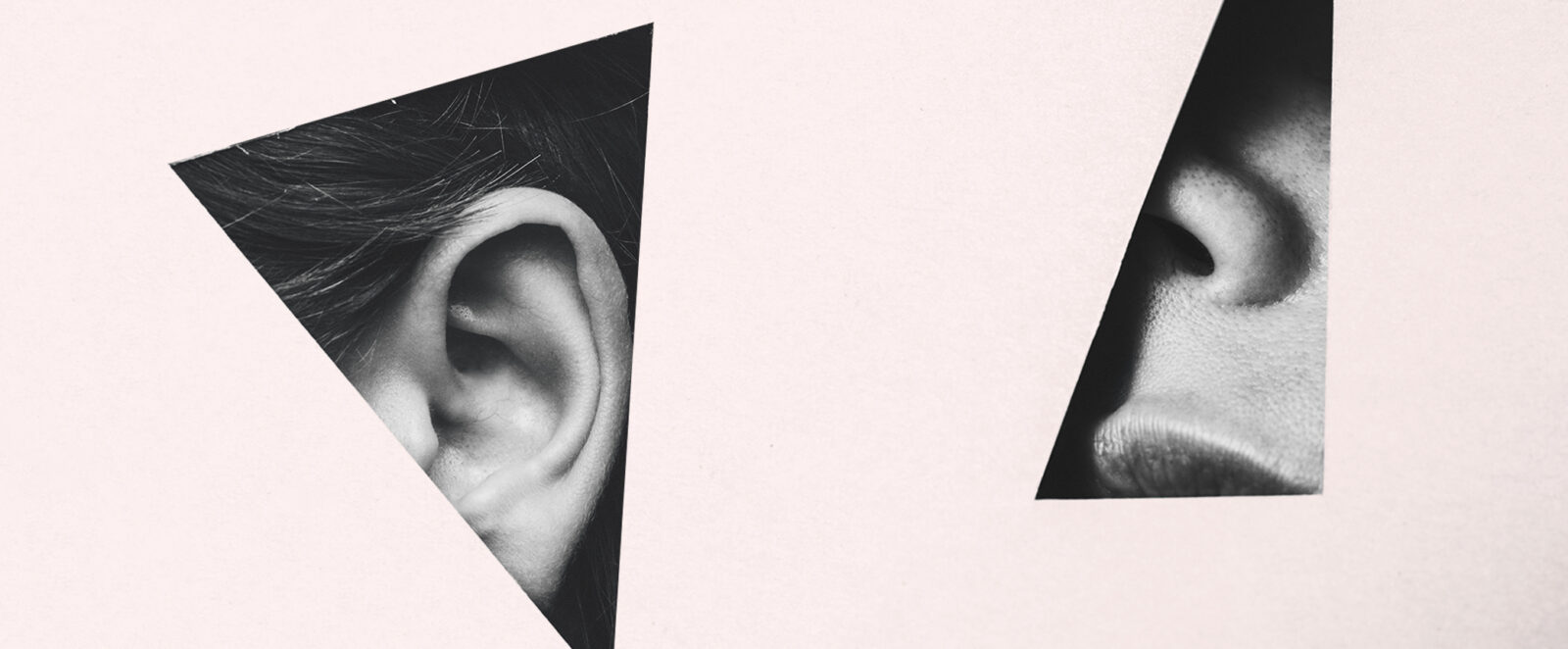
Images © Bonninstudio/Stocksy

Images © Bonninstudio/Stocksy
I began to learn the art of conversation from the Benedictine monks of St. John’s Abbey of Collegeville when I moved to Minnesota by way of one of life’s odd, unplanned trajectories in the mid-90s. Religious stridency in American life had reached a fever pitch of toxicity, spurred on by a media appetite for voices that delivered entertainment. I was fresh from my study of theology, and intensely aware that we were working with a very limited vocabulary and skillset to discuss things that matter in public. These Benedictines had founded a quiet but mighty institute for “ecumenical and cultural research” in the 1960s, when the notion of Catholics and Protestants in relationship was an unimaginably daring move. It became a seedbed of cross-religious ferment for the latter half of the twentieth century.
In Collegeville, discussion about a large, meaty, theological subject began by framing it as a question and then asking everyone around the table to begin to answer that question through the story of their life. “Who is God?” “What is prayer?” “How do we approach the problem of evil?” “What is the content of Christian hope?” I can disagree with your opinion, it turns out, but I can’t disagree with your experience. And once I have a sense of your experience, you and I are in relationship, acknowledging the complexity in each other’s position, listening less guardedly. The difference in our opinions will probably remain intact, but it no longer defines what is possible between us.

Image © Bonninstudio/Stocksy
At St. John’s, we had hours to tell our own stories and listen to others, days to unfold the “why” and “what next” and “so what” questions that followed and take them up together. I’ve found it possible to preserve the core wisdom of this approach and condense it in other times and places. I walk with people back and forth across the intersection of what they know and who they are, what they believe and how they live, and what that might have to do with all the rest of us. My usual opening inquiry, whether I’m with a theologian or a physicist, a parent or a poet, atheist or devout, is this: Was there a religious or spiritual background to your childhood? To be clear, this is radically different from the more obvious, unnerving question I would never ask: Tell me about your religious or spiritual life now? This part of us is as intimate as anything we attempt to put words around, and it ultimately defies them. The wise Quaker author and teacher Parker Palmer, my beloved mentor and friend, likens the human soul to a wild animal in the backwoods of our psyche, sure to run away if cross-examined. But everyone, I’ve learned, has a story to tell about the spiritual background of their childhood. This simple inquiry invites an open-hearted recollection that honors all the nuance and improvisation and clarity we’ve gathered around whatever soul or spirit means. It stirs a part of us where certainties are leavened by experiences, by hopes, and by fears. It’s a place that remembers questions as vividly as answers—questions we may have followed our whole lives long and that, with the right encouragement, we might take up with others. Just as importantly, this question plants the entire conversation to come in a stance that is softer and more searching than we usually present as adults to the world. And it leads organically, along straight or meandering paths, into the roots of the curiosity that becomes, in adulthood, passion and vocation.
I’ve heard answers that are captured in one word and take off from there: “love” and “loneliness.” Much of the way people talk about the religious background of their childhood has to do with absence as much as presence—the mother, for example, who would take the family to church while the father stayed home and read the paper. The newspaper-reading father is etched into the fabric of subsequent spiritual wonderings as much as any ritual inside walls of faith. I’ve spoken with many, many scientists who describe their discovery that mathematics could explain the colors on the surface of an oil slick, not to mention the motions of stars, and how this realization thrilled them with a sense of purpose transcendent in its way; that it was possible to explore how the world works and our place in it. I’ve spoken with a neuropsychologist who as a young volunteer with the Special Olympics began puzzling over the question of what makes a mind original and beautiful. I’ve met a French-born Tibetan Buddhist monk and passionate photographer who started his life as an atheist molecular biologist and whose life was upended by photos he came across of the faces of monks, pictures that revealed an unexpected template for radiant, integrated life.
There are pleasurable, primal, life-giving reasons we are rediscovering the power of personal story everywhere in media and culture. The art of conversation I’m describing here is related, but it is something subtly and directionally different—sharing our stories in the service of probing together who we are and who we want to be. To me every great story opens into an equally galvanizing exchange we can have together: So what? How does this change the way you see and live? How might it inform the way I see and live? I believe we can push ourselves farther and use words more powerfully and tell and make the story of our time anew.
The art of starting new kinds of conversations, of creating new departure points and new outcomes in our common grappling, is not rocket science. But it does require that we nuance or retire some habits so ingrained that they feel like the only way it can be done. We’ve all been trained to be advocates for what we care about. This has its place and its value in civil society, but it can get in the way of the axial move of deciding to care about each other.
Listening is an everyday social art, but it’s an art we have neglected and must learn anew. Listening is more than being quiet while the other person speaks until you can say what you have to say. I like the language the physician Rachel Naomi Remen uses with young doctors to describe what they should practice: “generous listening.” Generous listening is powered by curiosity, a virtue we can invite and nurture in ourselves to render it instinctive. It involves a kind of vulnerability—a willingness to be surprised, to let go of assumptions and take in ambiguity. The listener wants to understand the humanity behind the words of the other, and patiently summons one’s own best self and one’s own best words and questions.
Generous listening in fact yields better questions. It’s not true what they taught us in school; there is such a thing as a bad question. In American life we trade mostly in answers—competing answers—and in questions that corner, incite, or entertain. In journalism we have a love affair with the “tough” question, which is often an assumption masked as an inquiry and looking for a fight. I edited the “spiritual background of your life” question out of our produced show for years for fear that it sounded soft, though I knew how it shaped everything that followed. My only measure of the strength of a question now is in the honesty and eloquence it elicits.
IF I’VE LEARNED NOTHING ELSE, I’VE LEARNED THIS: A QUESTION IS A POWERFUL THING . . .
If I’ve learned nothing else, I’ve learned this: a question is a powerful thing, a mighty use of words. Questions elicit answers in their likeness. Answers mirror the questions they rise, or fall, to meet. So while a simple question can be precisely what’s needed to drive to the heart of the matter, it’s hard to meet a simplistic question with anything but a simplistic answer. It’s hard to transcend a combative question. But it’s hard to resist a generous question. We all have it in us to formulate questions that invite honesty, dignity, and revelation. There is something redemptive and life-giving about asking a better question.
Here’s another quality of generous questions, questions as social art and civic tools: they may not want answers, or not immediately. They might be raised in order to be pondered, dwelt on, instead. The intimate and civilizational questions we are living with in our time are not going to be answered with answers we can all make peace with any time soon.
The poet Rainer Maria Rilke spoke of holding questions, living questions:
Love the questions themselves as if they were locked rooms or books written in a very foreign language. Don’t search for the answers, which could not be given to you now, because you would not be able to live them. And the point is to live everything. Live the questions now. Perhaps then, someday far in the future, you will gradually, without even noticing it, live your way into the answer.
The poet Elizabeth Alexander has posed a question by way of poetry that I wish I could throw out into the world right now, into town hall meetings and the halls of Congress, and just let it roll around for a while: “Are we not of interest to each other?”
I CAN DISAGREE WITH YOUR OPINION, IT TURNS OUT, BUT I CAN’T DISAGREE WITH YOUR EXPERIENCE.
Our cultural mode of debating issues by way of competing certainties comes with a drive to resolution. We want others to acknowledge that our answers are right. We call the debate or get on the same page or take a vote and move on. The alternative involves a different orientation to the point of conversing in the first place: to invite searching, not on who is right and who is wrong and the arguments on every side, not on whether we can agree, but on what is at stake in human terms for us all. There is value in learning to speak together honestly and relate to each other with dignity, without rushing to common ground that would leave all the hard questions hanging.
And sometimes one wise voice that has been in the world for a while and evolved, lived the same human drama from a few different angles, can provide more nuance than any two-sided debate. Frances Kissling is one of those voices for me. She’s steeped in the particular context of reproductive rights, but what she’s learned applies to every sphere. She also has stopped using some of the comforting words we understandably reflexively leap to as a basis for dialogue, like identifying common ground in the midst of deep differences: “The pressure of coming to agreement works against really understanding each other,” she says. “And we don’t understand each other.” And, she adds:
The need to approach others positively and with enthusiasm for difference is absolutely critical to any change. More importantly, you have got to approach differences with this notion that there is good in the other. That’s it. And that if we can’t figure out how to do that and if there isn’t the crack in the middle where there’s some people on both sides who absolutely refuse to see the other as evil, this is going to continue. There’s a lot of pressure and it’s much easier to preach to the choir versus listening to people who disagree with you. But the choir is already there; the choir doesn’t need us.
In the crack in the middle where people on both sides absolutely refuse to see each other as evil, we rediscover the power of words to move us toward each other and away. We simultaneously circle back to the necessity of virtue to hold us to a care with our words—the intention we bring to what we speak, the quality of our listening, the trustworthiness and generosity we impart to the spaces in which we share our lives. The point of learning to speak together differently is learning to live together differently. It’s a dance of words with arts of living.

Krista Tippett is the Peabody Award-winning host and executive producer of the radio program On Being and the New York Times best-selling author of Becoming Wise. In 2014 President Obama awarded her the National Humanities medal for “thoughtfully delving into the mysteries of human existence.” In 2013 she created the On Being Project, an independent, nonprofit enterprise designed to deepen the engagement of diverse audiences and amplify the unusual social impact of this content.
Get the latest news and stories from the Rubin, plus occasional information on how to support our work.